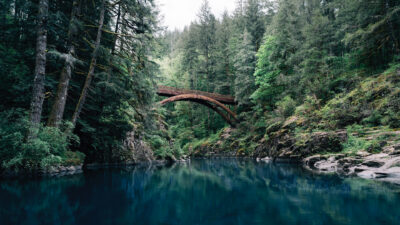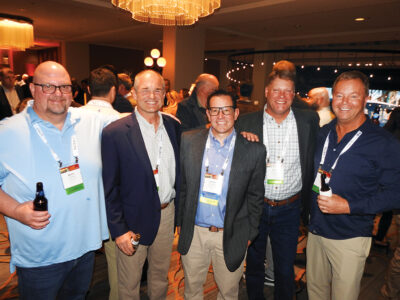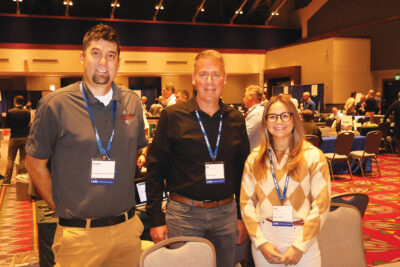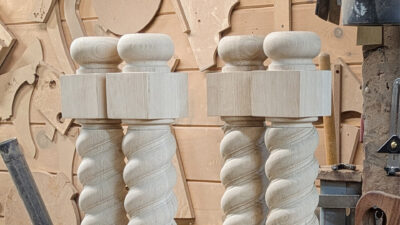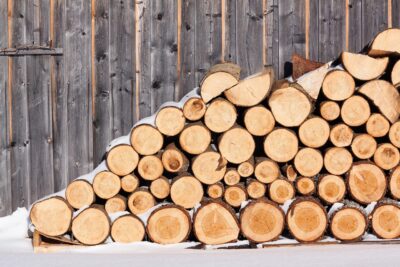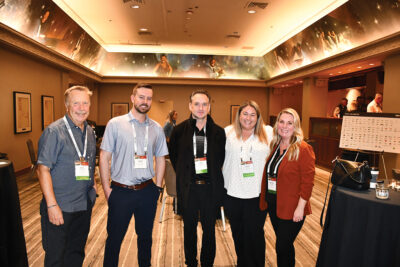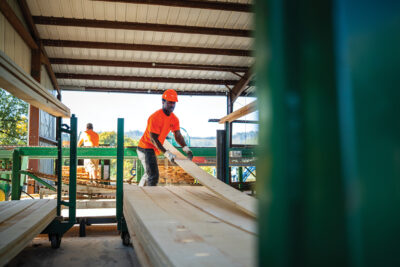“This company has been a vital part of our community for nearly a century, thanks to the dedication of all of the previous owners. Staying true to the values that have made Sears Trostel a trusted name, our focus will remain on delivering exceptional quality and service to our customers, as well as exploring new opportunities for innovation and growth.” ~ David Seidl, owner, Sears Trostel
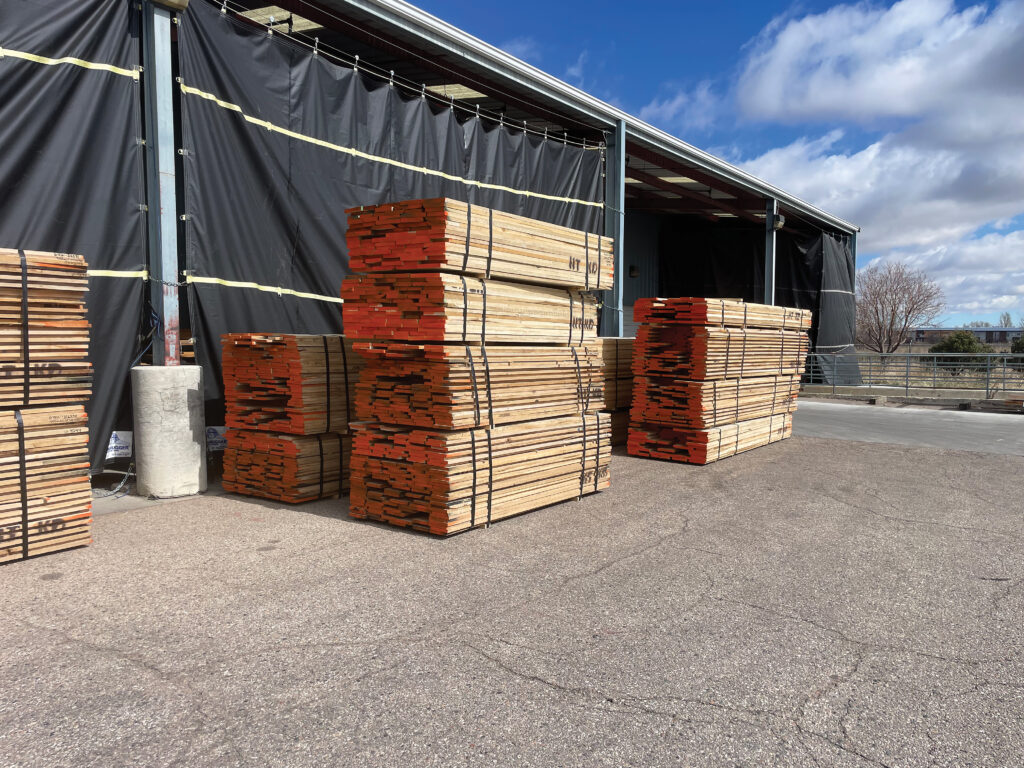
Sears Trostel Lumber & Millwork, located in Fort Collins, CO, distributes hardwood and softwood lumber and manufactures hardwood and softwood millwork. Purchasing 184,000 board feet in softwoods, which include 1 million board feet annually and in hardwood lumber annually, softwood lumber products include Eastern White Pine, Western Red Cedar, Ponderosa Pine, Douglas Fir, Western Hemlock and thermally modified Western Hemlock. Hardwood lumber grades available include primarily FAS with some Rustic in 4/4 through 16/4.
Products manufactured at Sears Trostel Lumber & Millwork include custom and stock architectural moldings, arched and curved moldings, faux ceiling beams, commercial and residential stair components, interior and exterior door jambs and S4S hardwood boards, exterior wood siding and paneling.
Products distributed are domestic and imported hardwood lumber, Western softwood lumber, live edge wood slabs, domestic hardwood plywood, Baltic birch plywood, John Boos wood countertops, Festool (German made power tools), and SawStop table saws.
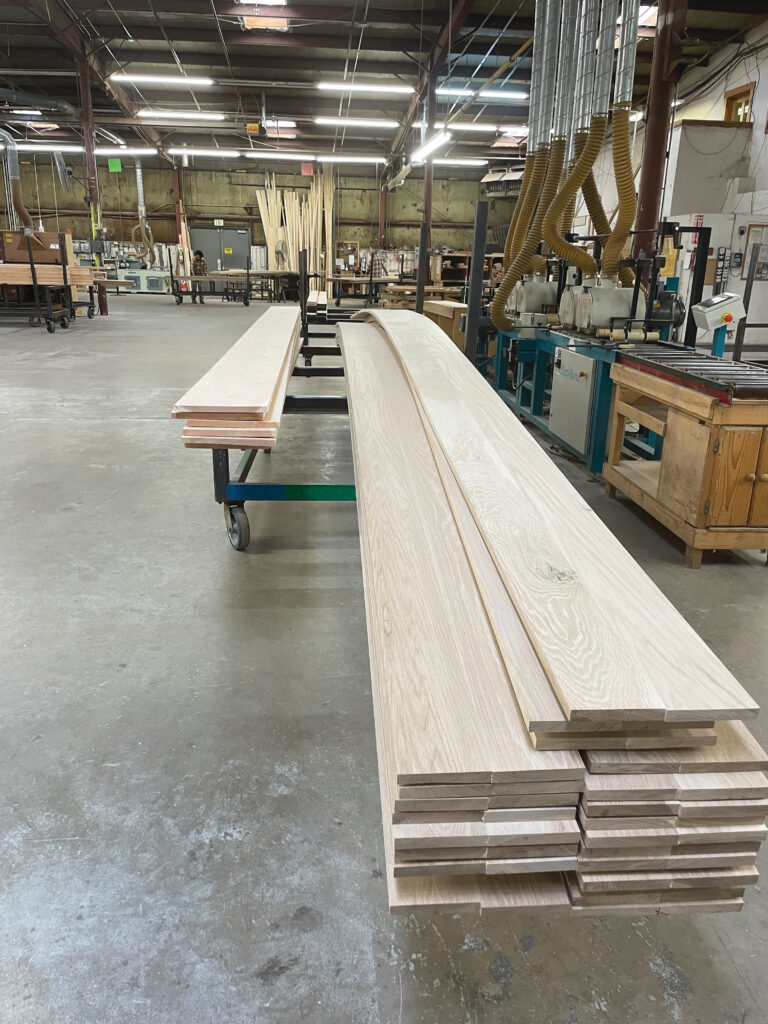
Steve Schwartz said the process at Sears Trostel is based on the fundamentals of Lean Thinking, a methodology that enables a company to eliminate waste wherever it is found. “We utilize Lean technology not just in manufacturing, but in every corner of the organization,” he explained. “For our customers, lean thinking translates into short lead times, superior quality and exceptional value. We get there by mapping our processes from start to finish, identifying areas that can be improved and focusing our collective energy on continuous improvement.”
Situated on four and a half acres the entire operation encompasses 58,000-square-feet with 22,000-square-feet of manufacturing; a 16,000-square-foot warehouse; and a 20,000-square-foot retail store and yard.
Manufacturing equipment includes: a 12-inch capacity Weinig Powermat 1500; a 9 inch Weinig Powermat 1500; a 9 inch Weinig Hydromat; the Weinig Cube; a Doucet 16-foot auto clamping carousel; a Series 23 Timesaver; Opti Sand profile sander; Circle T lock miter machine; two Weinig knife grinders; Mereen-Johnson and Raimann gang rip saws; a Pinhiero double surfacer; a Cantek ripsaw; a Kentwood horizontal resaw; a Raimann gang rip; tilting arbor shaper; and a Northtech finger jointer.
Sears Trostel Lumber Co. was founded in October of 1929 by Carl Trostel. It was operated by Carl Trostel and his family up until 1948. Bob Sears, Carl Trostel’s son-in-law bought the business and ran it until 1980 when Stephen Schwartz and Curt Viehmeyer purchased the business. Schwartz and Viehmeyer owned and managed the Sears Trostel until 2024, when David Seidl, a Fort Collins entrepreneur, purchased the company.
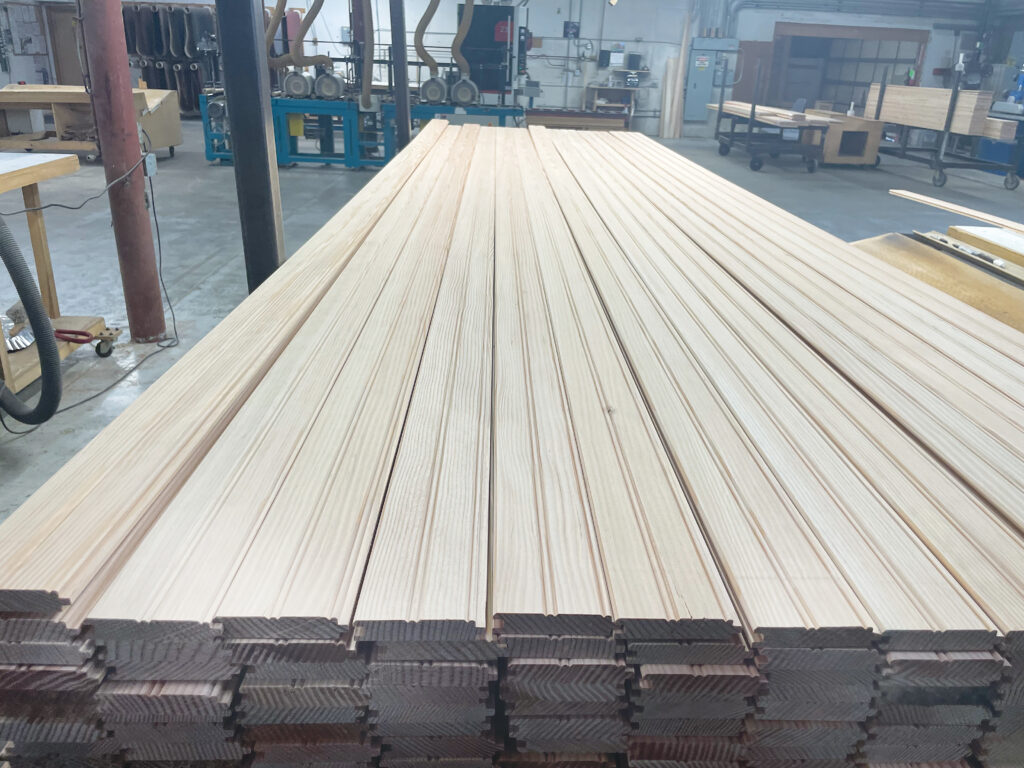
“I am truly honored to take the reins of Sears Trostel,” Seidl said. “This company has been a vital part of our community for nearly a century, thanks to the dedication of all of the previous owners. Staying true to the values that have made Sears Trostel a trusted name, our focus will remain on delivering exceptional quality and service to our customers, as well as exploring new opportunities for innovation and growth.”
Schwartz explained, “In 1980, the lumberyard was your traditional retail lumberyard offering dimension lumber, 2×4’s, 2×6’s, drywall, paint, builders hardware, Redi mix concrete and other construction type products. What set the business apart from the “big box” stores was an extensive inventory of kiln and air-dried hardwood lumber.”
He continued, “They purchased No. 2 Common and Better red and white oak, walnut and cherry. Bob’s son, Bill, would drive a truck out to a sawmill in Iowa, pick up a load of lumber and we would then put it on sticks, where we managed to dry the lumber to 10 percent moisture content.”
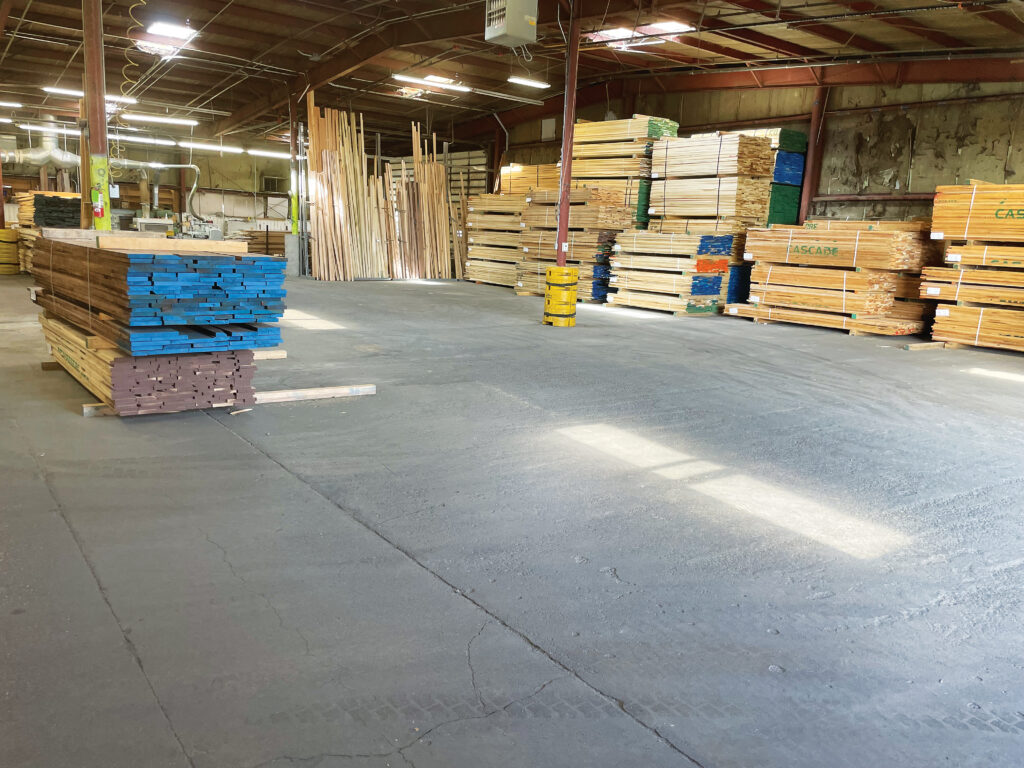
With several decades behind them, Sears Trostel Lumber is no stranger to overcoming obstacles. During the early days Schwartz said the semi-arid Colorado weather was a big factor. “We would ship the lumber to Denver for surfacing,” he explained. “Right after Curt and I acquired Sears Trostel, we came to the realization that we had a serious powder post beetle infestation not only in the hardwoods but in some Redwood boards. That was the end of buying air-dried lumber out of Iowa. Every stick of lumber had to be moved outside, re-stickered and fumigated with Methyl Bromide,” he recalled.
“We started buying kiln-dried hardwood lumber from distributors in Denver until one day Jim Wilson, from Frank Wilson Lumber in Elkins, WV, walked in out of the blue and asked us if we would be interested in buying a mixed truckload of hardwood lumber. We decided to focus on selling hardwood lumber to the local cabinet shops and custom home builders. Mr. Wilson played a big part in our success as a Colorado distribution yard.”
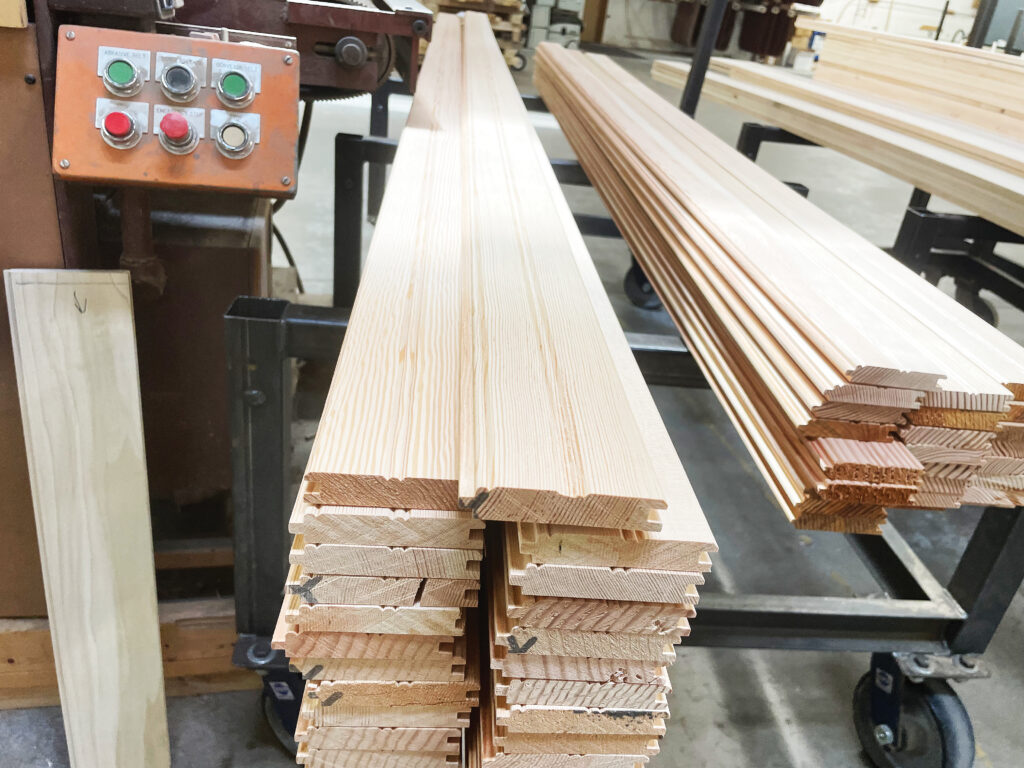
Realizing the potential of adding value to hardwood lumber, Schwartz and Viehmeyer bought their first four spindle moulder, an XL Moldmatcher. Schwartz said, “This decision enabled us to move more wood with improved margins over straight up distribution. We quickly realized the potential of running mouldings and two years later we purchased our first Weinig Moulder. This enabled us to expand into a wider market. Presently, value added wood products constitute 75 percent of our business and 25 percent is distribution sales.”
In line with the company’s lean methodology, responsible stewardship is important to the operation. “We strive to streamline our process at every step, reducing waste and cost,” he explained. “All of these practices allow us to bring a superior product to market, while still being responsible stewards of our natural resources.”
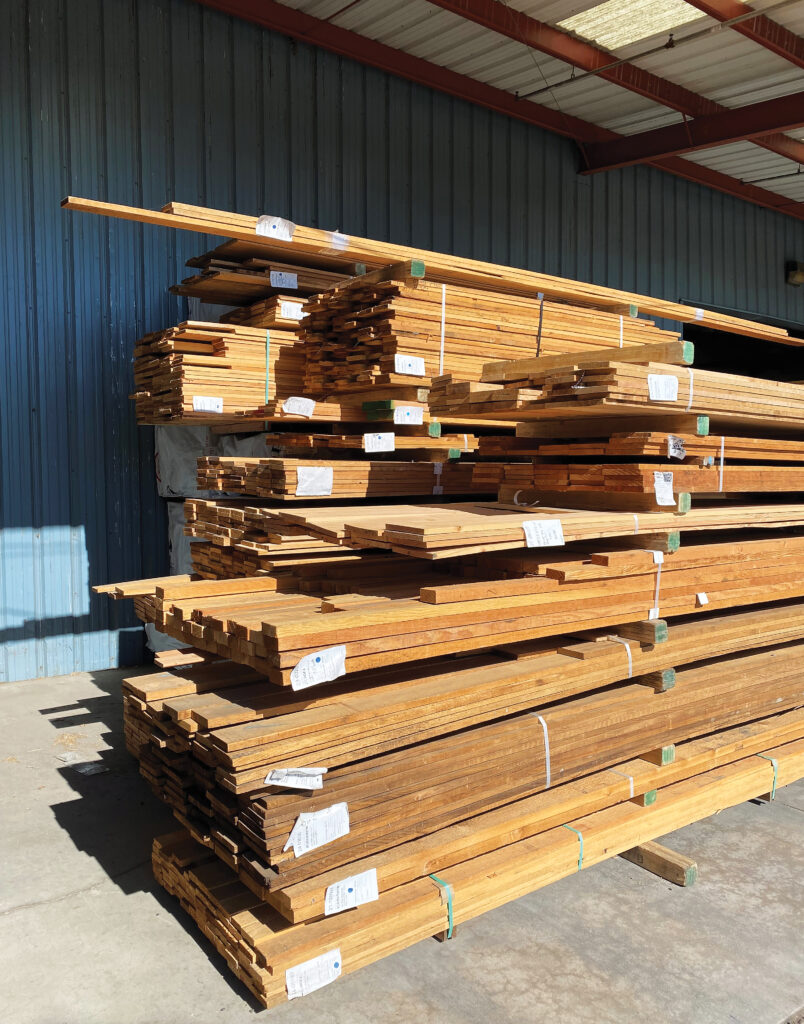
The focus for today and for the future at Sears Trostel is consistency and improvement. Schwartz offered, “Continuous improvement is part of our culture, continuous motion is an essential part of our process. When an order is placed, tooling is scheduled, lumber is inspected and pulled, and the order is added to our production queue for processing. Once the wood for your order begins moving, it doesn’t stop. Millwork moves from station to station and remains in virtually constant motion until it reaches the truck that will deliver it to the jobsite exactly when our customers expect it to arrive. This fast, efficient manufacturing flow reduces lead times and helps to ensure that our customers’ projects stay on schedule.”
“We are pleased to see Sears Trostel enter this new phase under David’s leadership. His commitment to his hometown community and business experience makes him an ideal candidate to move the company forward,” both Schwartz and Viehmeyer said. They will continue working in their current capacities for the next year to help ensure a smooth transition.
Key personnel at Sears Trostel Lumber & Millwork including new owner and CEO David Seidl; former owners Steve Schwartz and Curt Viehmeyer; Operations Manager, Carl Herrmann; Accounting and Human Resources, Deanna Payne; Production Manager, Kevin Iliff; Warehouse Manager, Noah Haswell; and Riverside Manager, Chet Nance.
For more information visit www.Sears-Trostel.com.

